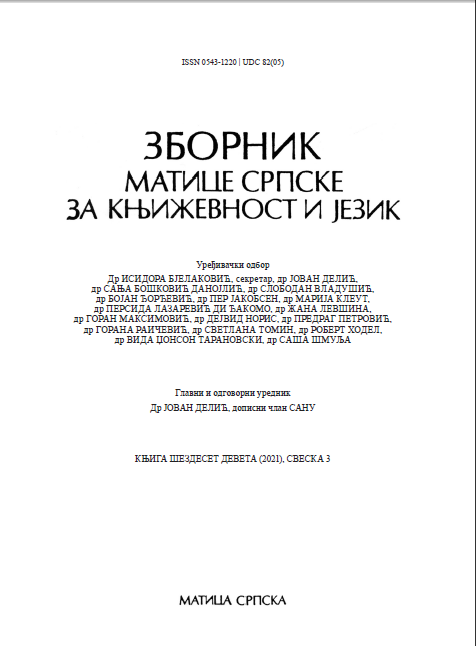DEA EX PROFUNDIS, БОЖАНСКО ДЕЈСТВОВАЊЕ У ЕУРИПИДОВОЈ ТРАГЕДИЈИ ХЕРАКЛЕ
DEA EX PROFUNDIS. DIVINE ACTION IN EURIPIDES’ HERACLES
Author(s): Jelena N. PilipovićSubject(s): Greek Literature
Published by: Матица српска
Keywords: epiphany; deity; insanity; tragedy; deus ex machina
Summary/Abstract: The tragedy dedicated to Heracles’ lethal insanity stands out within Euripides’ preserved opus for its special divine influence on dramatic fictionality, as well as for its explicit and diverse theological discourse which interweaves the ambivalent relationship of poetry and philosophy in the late classical age of Athenian culture. Both the phenomenon of divine action in the world of mortals and the phenomenon of divine existence itself are thus passed through different prisms and announced in different lights. The complex intertwining of the perceptive and amorphous epiphany begins with the appearance of a divine messenger Iris and the goddess of insanity, Lyssa, in heaven, functioning as dei ex machina in the center of the plot, and has no parallel in the great tragediographer’s work. The unusual dramaturgical process branches out when the goddess of insanity enters the inside of Heracles’ being in order to act from it as a deity from the depths, dea ex profundis, whereby all the hero’s crimes become her amorphous epiphanies. In a hermeneutic effort, through a palimpsestic reading of a number of ancient texts, the paper explores the complex vision of the divine that Euripides exudes in Heracles and its importance for the universe of this tragedy as well as for the tragic phenomenon in general.
Journal: Зборник Матице српске за књижевност и језик
- Issue Year: 69/2021
- Issue No: 3
- Page Range: 567-585
- Page Count: 19
- Language: Serbian

